
10 Cancer-Linked Foods You Should Never Put in Your Mouth Again
Cancer remains one of the leading causes of death worldwide, and while genetics and environment play undeniable roles, growing scientific evidence underscores the significant impact of diet on cancer risk. What you eat daily can either fuel your body’s defenses or unknowingly contribute to carcinogenic processes. Recognizing and avoiding potentially cancer-causing foods is a crucial step toward prevention and long-term well-being.
This comprehensive guide explores 10 foods and food-related substances strongly linked to increased cancer risk, backed by scientific studies and health organizations. Beyond simply listing these culprits, we analyze why they pose dangers, discuss emerging research, and offer practical tips to help you reduce exposure while maintaining a nutritious, satisfying diet.
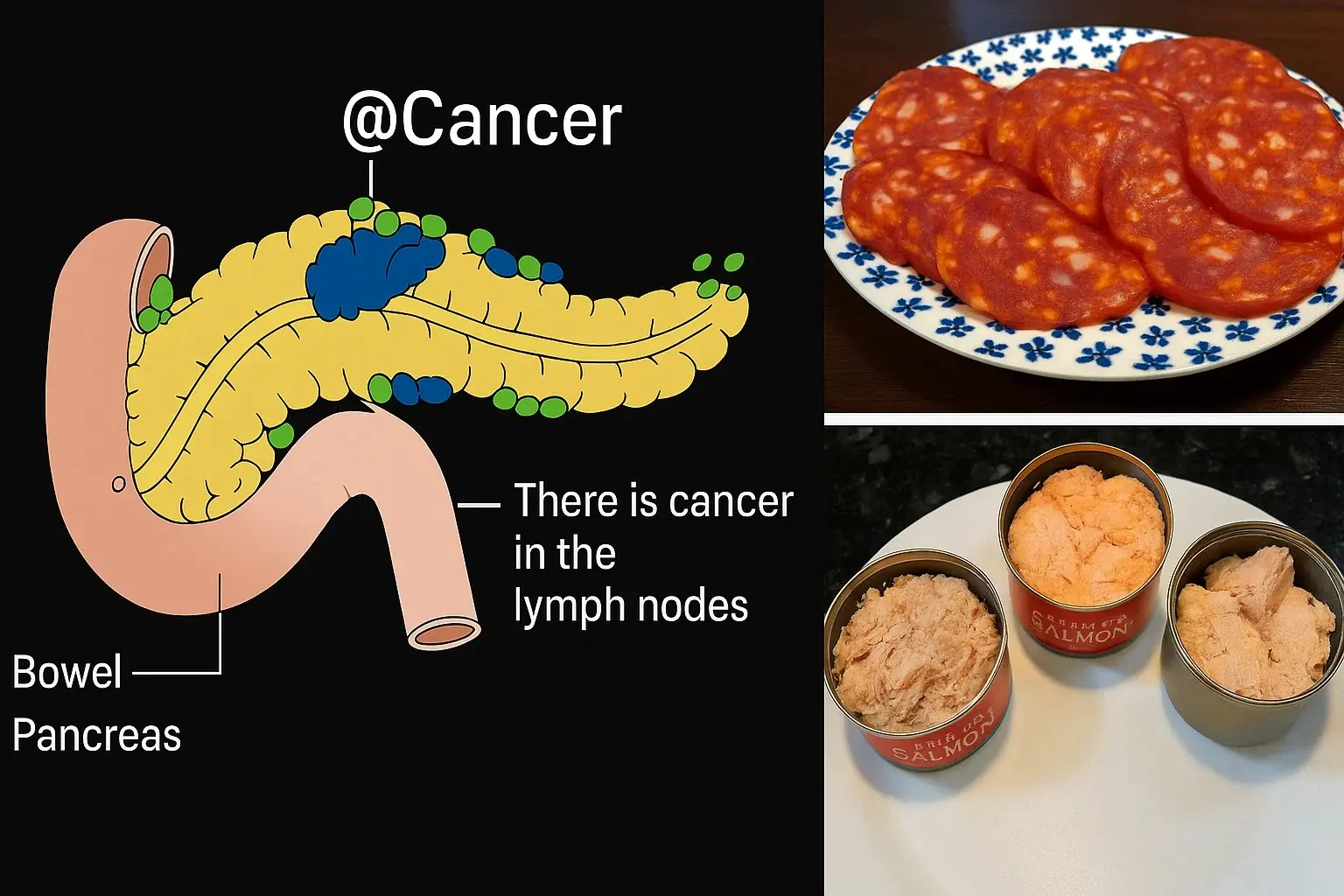
Understanding Carcinogens in Food: What Makes Some Foods Dangerous?
Before diving into the list, it’s important to clarify what “carcinogenic” means in the context of diet. Carcinogens are substances that can lead to cancer by causing DNA mutations or promoting tumor growth. In foods, carcinogens may occur naturally, be introduced during processing, or form as by-products of cooking.
The International Agency for Research on Cancer (IARC), part of the World Health Organization (WHO), classifies carcinogens into groups based on the strength of evidence - from confirmed human carcinogens to possible or probable ones. While some foods contain known carcinogens, risk also depends on quantity, frequency of consumption, individual susceptibility, and overall lifestyle.
- BPA-Lined Cans and Plastic Packaging: The Hidden Chemical Threat
What is BPA?
Bisphenol-A (BPA) is an industrial chemical used to harden plastics and coat the inner linings of metal cans, preventing corrosion and contamination. BPA exposure primarily comes from food and beverage containers, especially canned goods.
Why is BPA Dangerous?
Laboratory studies have demonstrated that BPA acts as an endocrine disruptor, interfering with hormone systems critical for growth, reproduction, and metabolism. Multiple animal and cellular studies link BPA exposure to increased cancer risk (including breast and prostate cancers), infertility, obesity, and diabetes.
How Does BPA Enter Your Food?
When cans or plastics containing BPA are heated or damaged, the chemical can leach into food and beverages. Unless explicitly labeled “BPA-free,” many canned products - soups, vegetables, fish, and soft drinks - contain this compound.
Practical Tips to Avoid BPA Exposure
- Opt for fresh, frozen, or glass-packaged foods instead of canned ones.
- Use BPA-free containers for food storage.
- Avoid heating food in plastic containers unless they are labeled microwave-safe and BPA-free.
- Reduce consumption of canned beverages and choose alternatives in glass bottles.
- Cured and Smoked Meats: The Preservative Problem
What Are Nitrates and Nitrites?
Nitrates and nitrites are preservatives widely used to prevent spoilage and enhance color in processed meats such as bacon, sausages, hot dogs, salami, and prosciutto. When heated or digested, these compounds can form N-nitroso compounds (NOCs) like nitrosamines, which are potent carcinogens.
Cancer Risks Associated with Processed Meats
The IARC classifies processed meats as Group 1 carcinogens, meaning there is sufficient evidence they cause cancer in humans. Studies have particularly linked them to colorectal cancer but also to stomach, pancreatic, and esophageal cancers.
Why Are Smoked Meats Worse?
Smoking meats produces additional carcinogenic substances such as polycyclic aromatic hydrocarbons (PAHs) and heterocyclic amines (HCAs), which further increase cancer risk.
Alternatives and Moderation
- Limit intake of processed and smoked meats.
- Choose fresh, unprocessed meats or plant-based protein sources.
- When consuming meat, prefer cooking methods like baking, steaming, or boiling instead of frying or charring.
- Farmed Fish: Pollution and Contaminants in Aquaculture
The Rise of Fish Farming
Farmed fish now make up more than half of global fish consumption. However, crowded fish farms raise concerns about chemical contamination.
Chemical Pollutants in Farmed Fish
Studies show farmed fish contain higher levels of polychlorinated biphenyls (PCBs) and other persistent organic pollutants (POPs) - substances known to bioaccumulate and disrupt human health. PCBs are classified as probable human carcinogens.
Antibiotics and Pesticides
To control disease in dense populations, fish farms use antibiotics and pesticides. These chemicals can persist in the fish and impact the human gut microbiome, immunity, and potentially increase cancer risk.
What Can Consumers Do?
- Prefer wild-caught fish from reputable sources, particularly low-mercury species like salmon, sardines, and trout.
- Diversify seafood choices to reduce pollutant exposure.
- Support sustainable aquaculture practices that minimize chemical use.
- Grilled and Charred Meats: A Risky Cooking Method
How Carcinogens Form on the Grill
When meat fat drips onto an open flame, it creates smoke containing PAHs that settle back on the food. Additionally, heterocyclic amines (HCAs) form in high-temperature cooking methods like grilling, barbecuing, or pan-frying.
Health Implications
PAHs and HCAs are mutagenic, meaning they damage DNA and promote cancer development, particularly cancers of the stomach, colon, pancreas, and prostate.
Safe Grilling Tips
- Marinate meats before grilling; antioxidants in herbs reduce carcinogen formation.
- Avoid direct exposure of meat to flames; use indirect heat.
- Flip meats frequently to prevent charring.
- Incorporate plenty of grilled vegetables, which do not produce these carcinogens.
- Hydrogenated Oils and Trans Fats: The Man-Made Enemy
What Are Trans Fats?
Hydrogenation chemically alters vegetable oils to make them solid at room temperature, extending shelf life and improving texture in processed foods.
Why Are Trans Fats Harmful?
Trans fats cause chronic inflammation, immune dysregulation, and are linked to heart disease, stroke, diabetes, and several cancers.
Regulations and Sources
Though many countries have banned or restricted trans fats, they still appear in some processed snacks, baked goods, and fried foods.
How to Avoid Trans Fats
- Check food labels for “partially hydrogenated oils.”
- Choose whole, unprocessed foods.
- Use natural oils like olive oil, avocado oil, or coconut oil in cooking.
- Microwave Popcorn: The Perils of Packaging Chemicals
Chemicals in Microwave Popcorn Bags
To prevent oil from soaking through packaging, bags are lined with perfluoroalkyl substances (PFAS) such as PFOA and PFOS, which are persistent environmental pollutants.
Health Concerns
Animal studies link PFOA exposure to tumors in the liver, pancreas, testicles, and mammary glands. Human epidemiological data also raise concerns about cancer risk and immune dysfunction.
Reducing Risk
- Avoid microwave popcorn or make popcorn on the stove with natural oil.
- Use fresh kernels and air-popper machines to avoid packaging chemicals.
- Stay informed about PFAS contamination in consumer products.
- Non-Organic Fruits and Vegetables: Pesticide Exposure
Pesticides and Cancer Risk
Pesticides widely used in conventional farming contain chemicals with potential carcinogenicity, affecting not only consumers but also farmworkers.
The Dirty Dozen and Clean Fifteen
The Environmental Working Group (EWG) publishes an annual list highlighting produce with the highest pesticide residues (“Dirty Dozen”) and those with the least (“Clean Fifteen”).
Tips for Choosing Produce
- Prioritize organic produce for high-pesticide-risk items like strawberries, apples, spinach, and grapes.
- Wash fruits and vegetables thoroughly.
- Support local and organic farmers when possible.
- Processed Foods: The Nutritional Pitfalls
What Makes Processed Foods Dangerous?
Besides high nitrite/nitrate content in meats, processed foods often contain:
- Refined white flour
- Added sugars
- Unhealthy fats and oils
- Artificial colors, flavors, and preservatives
These components contribute to obesity, metabolic syndrome, and inflammation - all risk factors for cancer.
Lifestyle Advice
- Emphasize whole, minimally processed foods.
- Read nutrition labels carefully.
- Prepare meals at home to control ingredients.
- Refined Sugars: Feeding Cancer Cells?
The Sugar-Cancer Connection
Cancer cells metabolize glucose at high rates - a phenomenon known as the “Warburg effect.” Excess sugar intake contributes to obesity, insulin resistance, and chronic inflammation, which fuel cancer growth.
Beyond Cancer
High sugar consumption is also linked to cardiovascular disease, fatty liver, arthritis, and immune suppression.
Practical Steps
- Reduce intake of sugary beverages, desserts, and snacks.
- Choose natural sweeteners like fruit or small amounts of honey.
- Balance your diet with fiber, protein, and healthy fats to stabilize blood sugar.
- Soda and Sports Drinks: Empty Calories with Added Risks
What’s in These Drinks?
Besides high fructose corn syrup and sugar, many sodas and sports drinks contain:
- Artificial dyes linked to carcinogenicity in animal studies
- Brominated vegetable oil (BVO), a flame retardant banned in some countries
- Aspartame, an artificial sweetener with controversial cancer risk data
Health Consequences
Regular consumption of these drinks contributes to obesity, metabolic disorders, and possibly increased cancer risk.
Healthier Hydration Choices
- Drink water, herbal teas, or natural fruit-infused water.
- If consuming sports drinks, reserve for intense exercise only.
- Read labels and avoid artificial additives.
Additional Considerations: Beyond Food – Lifestyle Habits Matter Too
Diet alone doesn’t determine cancer risk. Other factors such as smoking, alcohol consumption, physical inactivity, and environmental toxins interact with dietary carcinogens.
Tips for comprehensive cancer prevention:
- Maintain a healthy body weight.
- Exercise regularly.
- Avoid tobacco and limit alcohol.
- Manage stress.
- Get regular health screenings.
Summary: Making Empowered Food Choices for Cancer Prevention
Awareness of potential carcinogens in everyday foods empowers you to take control of your health. Avoiding or limiting the ten foods and substances listed here can significantly reduce exposure to dietary carcinogens.
Focus on:
- Eating whole, organic, fresh foods
- Choosing safer cooking methods
- Reading food labels diligently
- Supporting sustainable and transparent food systems
By making informed dietary adjustments, you contribute to lowering your cancer risk and enhancing overall vitality.
News in the same category


Spanish woman spends $50,000 crore on 'momo-like' lips; "I have trouble breathing and can't close my mouth... but I have no plans to stop"
A transgender woman who has gotten so much lip filler she now has breathing problems and can't close her mouth has insisted that she's far from done.
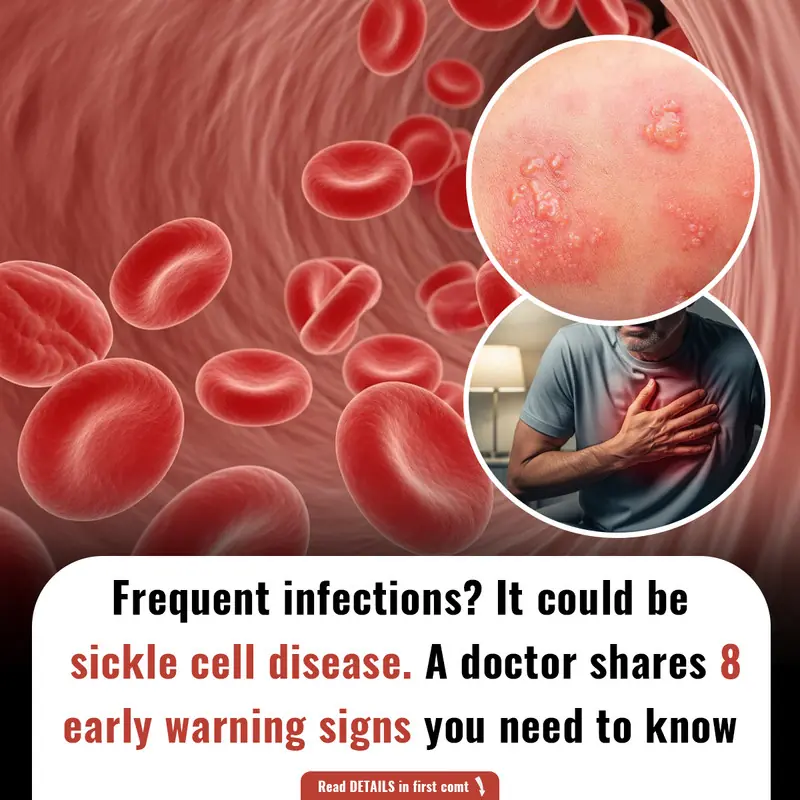
Frequent infections? It could be sickle cell disease. A doctor shares 8 early warning signs you need to know
From jaundice to swelling in hands, know the early signs of sickle cell disease. The doctor also shared when to seek medical intervention.

What are those bumpy dots on the rice paddle for? Turns out they're not for preventing sticking, as many believe.
Although used daily, many people do not know what the bumps on the rice paddle in the rice cooker are for.

Don't ignore it: The truth about hidden cameras in hotel mirrors and how to spot them for your safety
Check the mirror in the hotel room to detect if you are being watched.
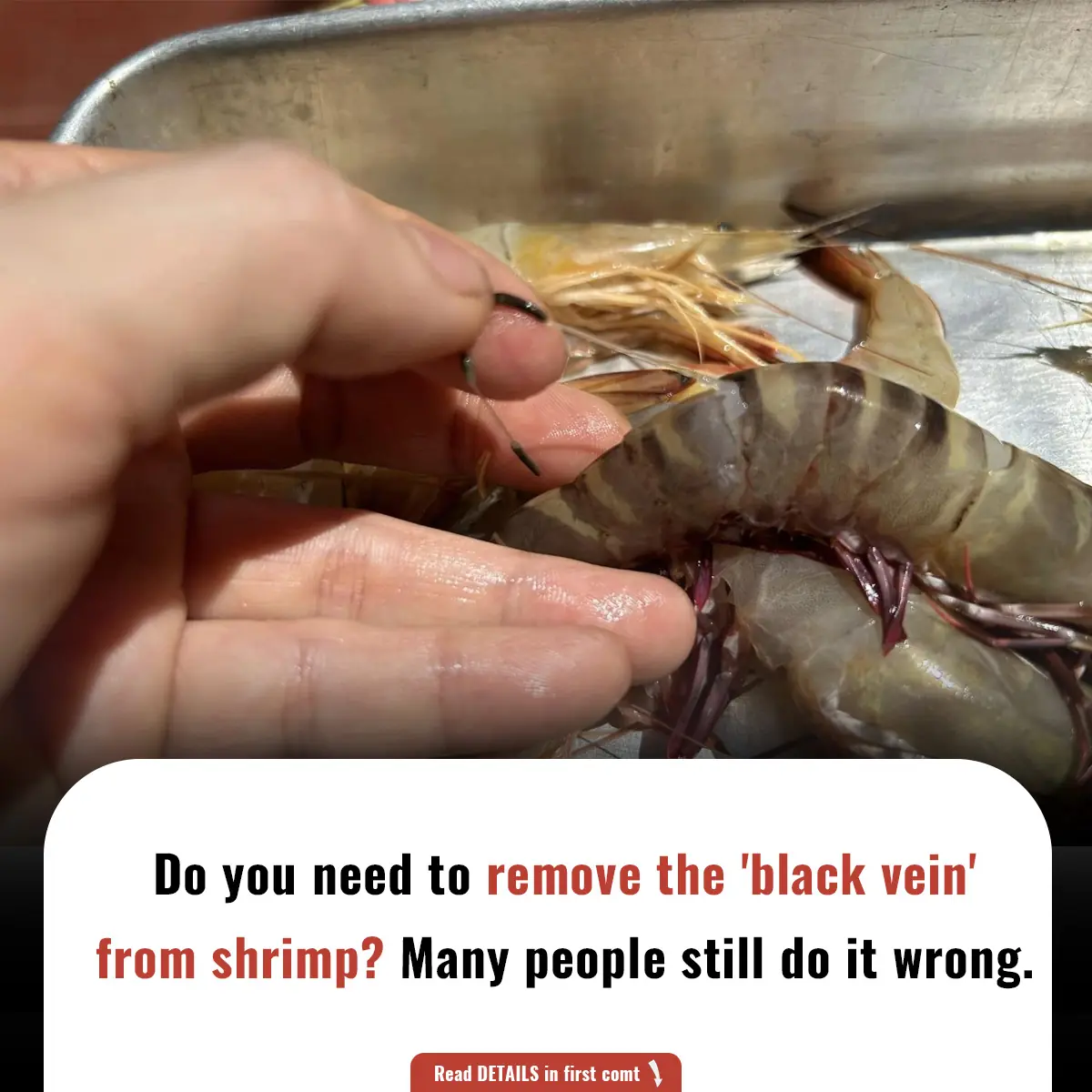
Do you need to remove the 'black vein' from shrimp? Many people still do it wrong.
Many people when processing shrimp are careful to remove the head, peel the shell, and take out the black thread (the line on the back of the shrimp) because they believe this part contains a lot of dirt. Is this necessary?

Late-night cravings? These 6 foods won't send your blood sugar soaring.
Bedtime Foods for Blood Sugar: If you are worrying about disturbing your blood sugar levels before calling it a day, try these easy diabetes-friendly options that won't disturb your sleep.

What happens when you drink clove water nightly for two weeks? The results might surprise you
While clove water offers health benefits, there are potential side effects to consider with regular consumption over two weeks.

150 eggs in 5 days: What happened to my body made me question every health belief
A man who consumed only eggs for five days has disclosed the unexpected impact it had on his body.
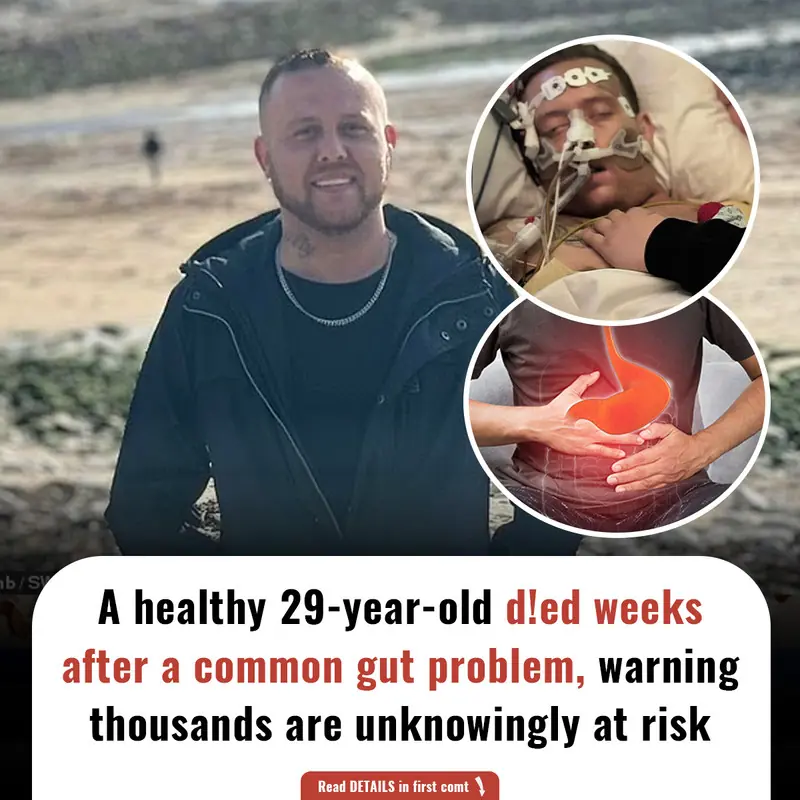
A healthy 29-year-old d!ed weeks after a common gut problem, warning thousands are unknowingly at risk.
The haunting story of a seemingly 'healthy' 29-year-old who passed away merely weeks after experiencing a 'stomach ache' has highlighted the dangerous consequences of frequent binge drinking.

"Most people are drinking coffee at the absolute worst time of the day" - If you drink your coffee at this time, you’re doing it wrong, doctor says
Welcome to Ask Doctor Zac, a weekly column featured in news.com.au. This week, Dr. Zac Turner explores the optimal and least favorable times to enjoy your cup of coffee.
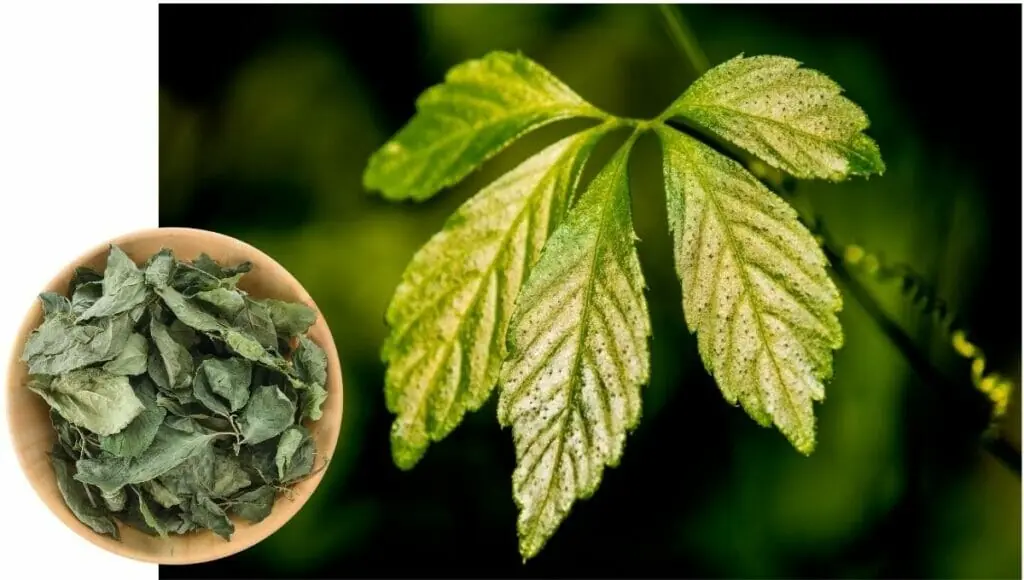
Wild plant with antioxidant capacity 8 times higher than green tea: Detoxifies the body, reduces blood fat
Thanks to its outstanding antioxidant properties, this plant offers many health benefits, including detoxifying the body and reducing blood fat.
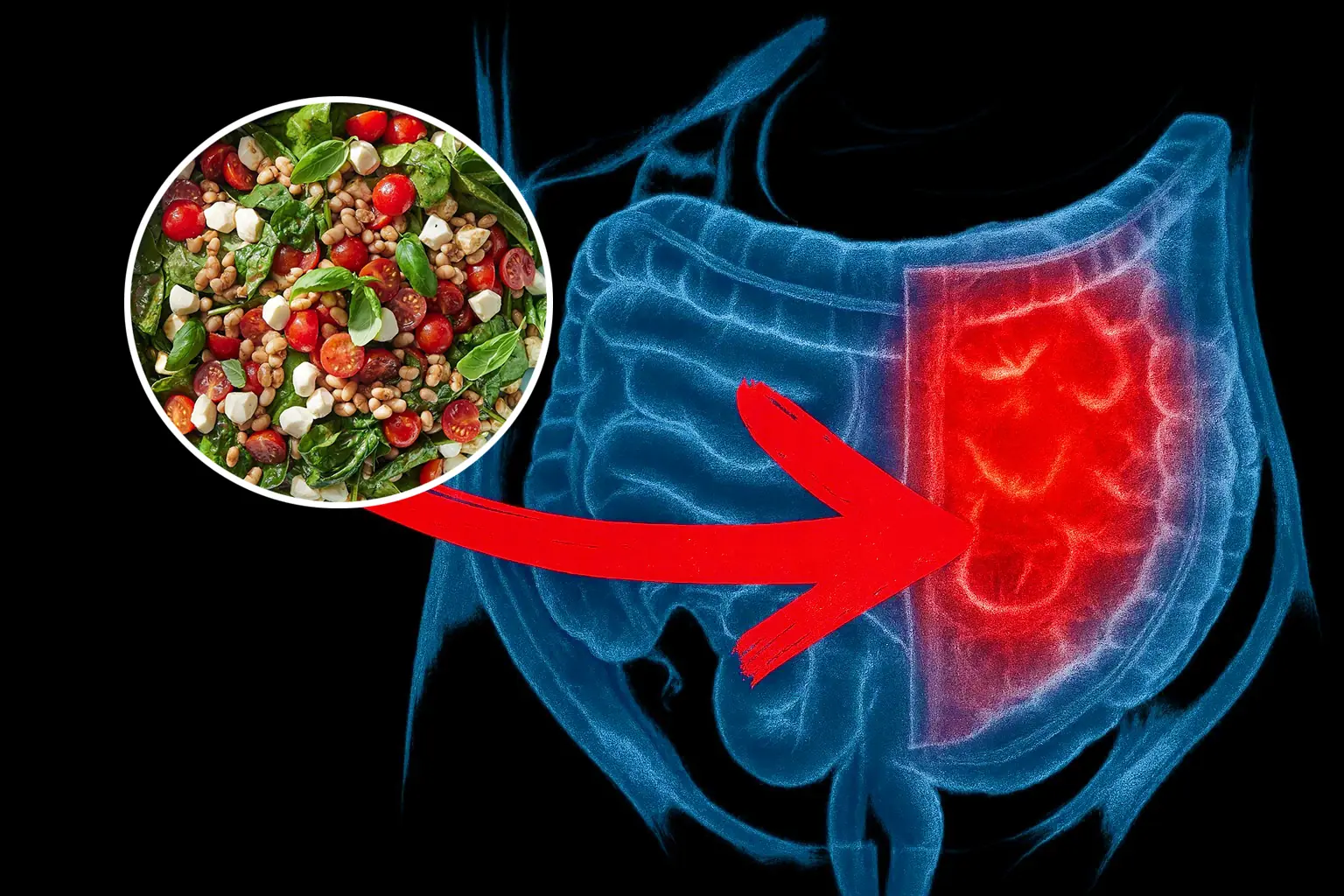
Experts reveal the best vegetable to help reduce visceral fat extremely effectively, unveil 4 more easy ways to l0se weight
A healthy diet is not only important for your current health, but it also has a big impact on your ability to prevent chronic diseases. According to nutritionists, there is one vegetable that stands out as helping to significantly reduce visceral fat.

Sleeping in Complete Darkness: How It Helps Prevent Canc3r Growth
Discover the powerful health benefits of sleeping in complete darkness, from reducing canc3r risk to boosting melatonin production. Learn how darkness impacts your health and improves sleep.

Warning: Common Digestive Issue Linked to Hidden Canc3r R!sk – Early Signs of Oesophageal Canc3r You Shouldn't Ignore
Learn how chronic acid reflux (GERD) could signal an increased risk for oesophageal canc3r, one of the de@dliest canc3rs. Discover early symptoms, when to seek medical help, and the importance of early detection.

Lower Bl00d Pressure Naturally: 5-Minute Daily Exercise for Effective Hypertension Management
Discover how just 5 minutes of daily exercise can lower bl00d pressure and reduce the risk of cardiovascular diseases. Learn about simple exercises and lifestyle changes to improve your heart health naturally.

Can Eating Cheese Cause Nightmares? New Study Explores the Link Between Dairy and Sleep Disruptions
Wonder if cheese really causes nightmares? A new study explores the connection between eating dairy products and disturbed sleep, including vivid nightmares. Discover the science behind this old wives' tale.
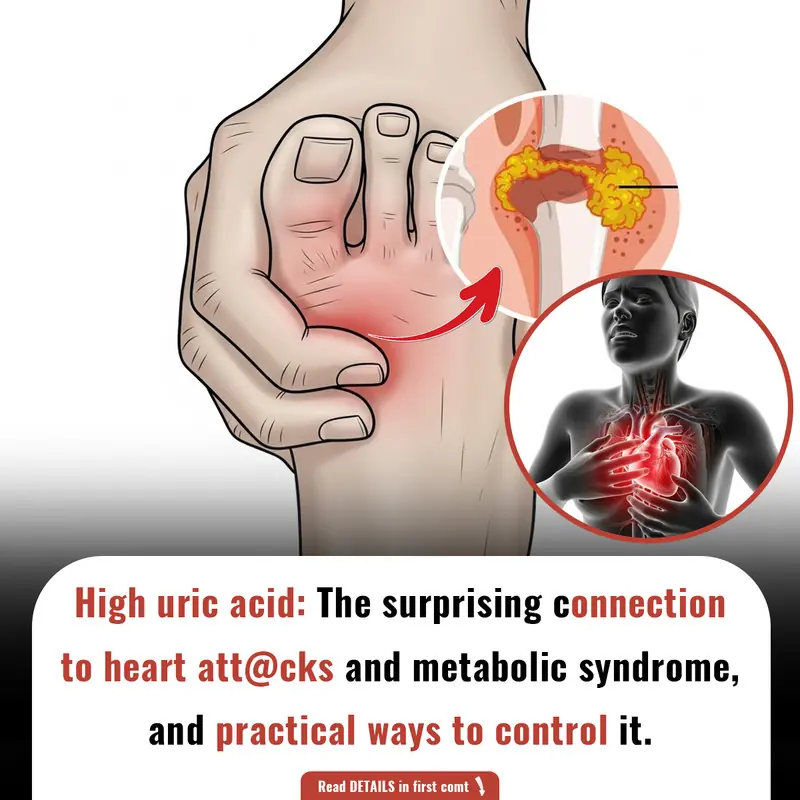
High uric acid: The surprising connection to heart att@cks and metabolic syndrome, and practical ways to control it.
Recent research suggests uric acid, traditionally linked to gout, may play a significant role in heart health and metabolic syndrome. It’s easy to think of uric acid as a problem. But perhaps it’s better viewed as a whisper from the body—hinting at

Ancestral wisdom warns: Homes with doors facing directly in 5 specific directions doom families to p0verty and a life of constant struggle
When designing a house or choosing a place to live, you should consider these 5 directions.
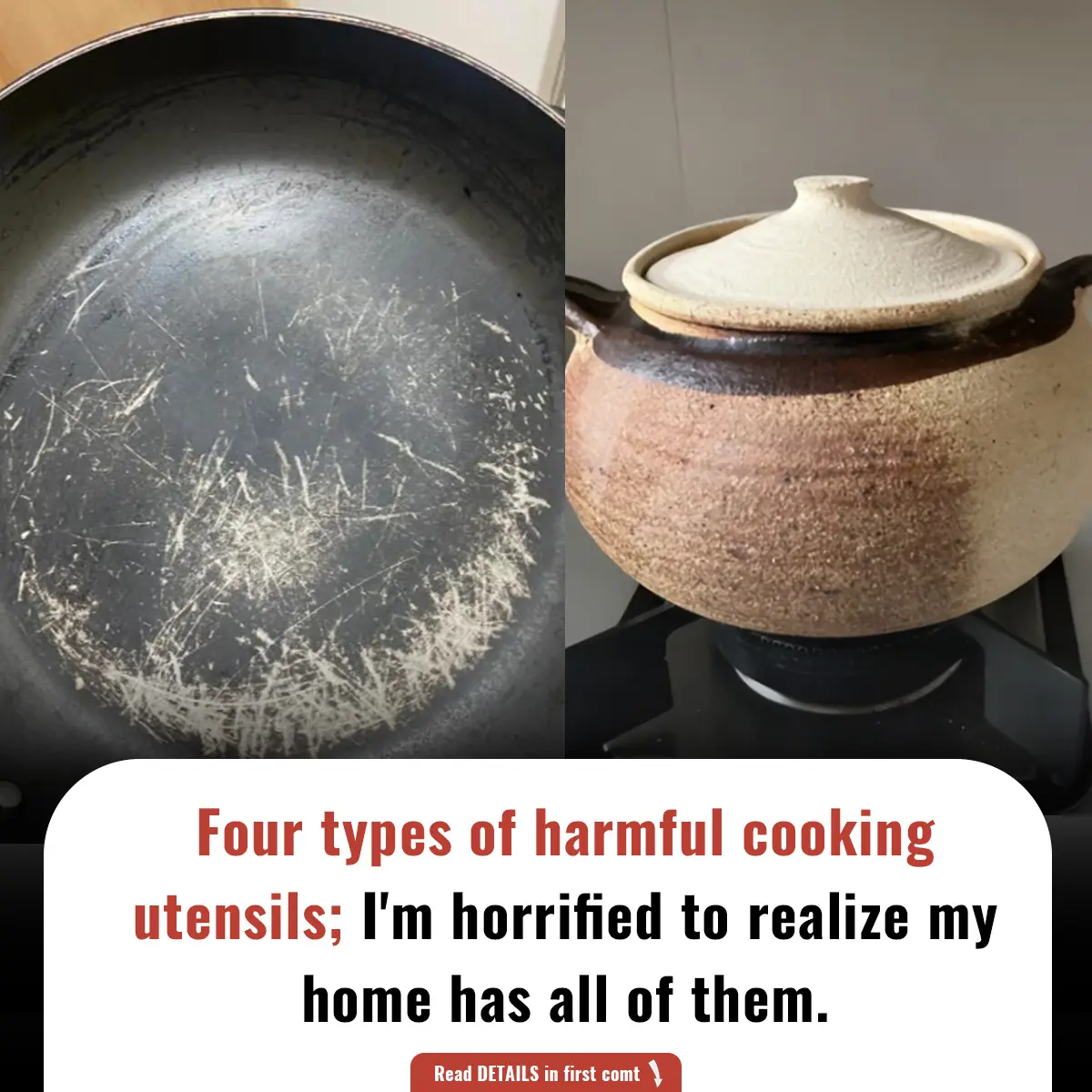
Four types of harmful cooking utensils; I'm horrified to realize my home has all of them.
Pots and pans are common items in every family's kitchen, but not all types are safe for health.
News Post

The Unbreakable Spirit of Nancy Wake: The White Mouse Who Defied Nazi Tyranny
Discover the inspiring story of Nancy Wake, a New Zealand-born nurse turned French Resistance leader, who fought with unmatched courage against the Nazis during WWII. Her bravery is a testament to the power of one individual’s determination.

Erase Wrinkles and Fight Signs of Aging with Banana Face Pack: The Ultimate DIY Skincare Remedy
With ingredients like banana peel, cornstarch, rice, lemon juice, and powdered milk, this DIY mask provides deep hydration, skin tightening, and brightening, making it an excellent addition to your skincare routine.

Amazon Miracle: The Unbelievable Survival of Juliane Koepcke
Sole survivor of a 10,000ft Amazon plane crash, 17-year-old Juliane Koepcke's incredible 11-day jungle survival story defies all odds.

The Unforgettable Bond: How a Nurse's Compassion Changed a Burn Survivor's Life Forever
In 1977, a tragic accident left baby Amanda Scarpinati scarred for life, but the compassion of a young nurse, Susan Berger, gave her the strength to heal. Forty years later, a viral search reunited them in an emotional, life-changing reunion.

Paying It Forward: How One Man’s Act of Kindness Inspired Hope for the Homeless
A former inmate shares his story and helps a homeless man in need at BIG LOTS, reminding us that compassion and empathy can change lives—even through the smallest acts.
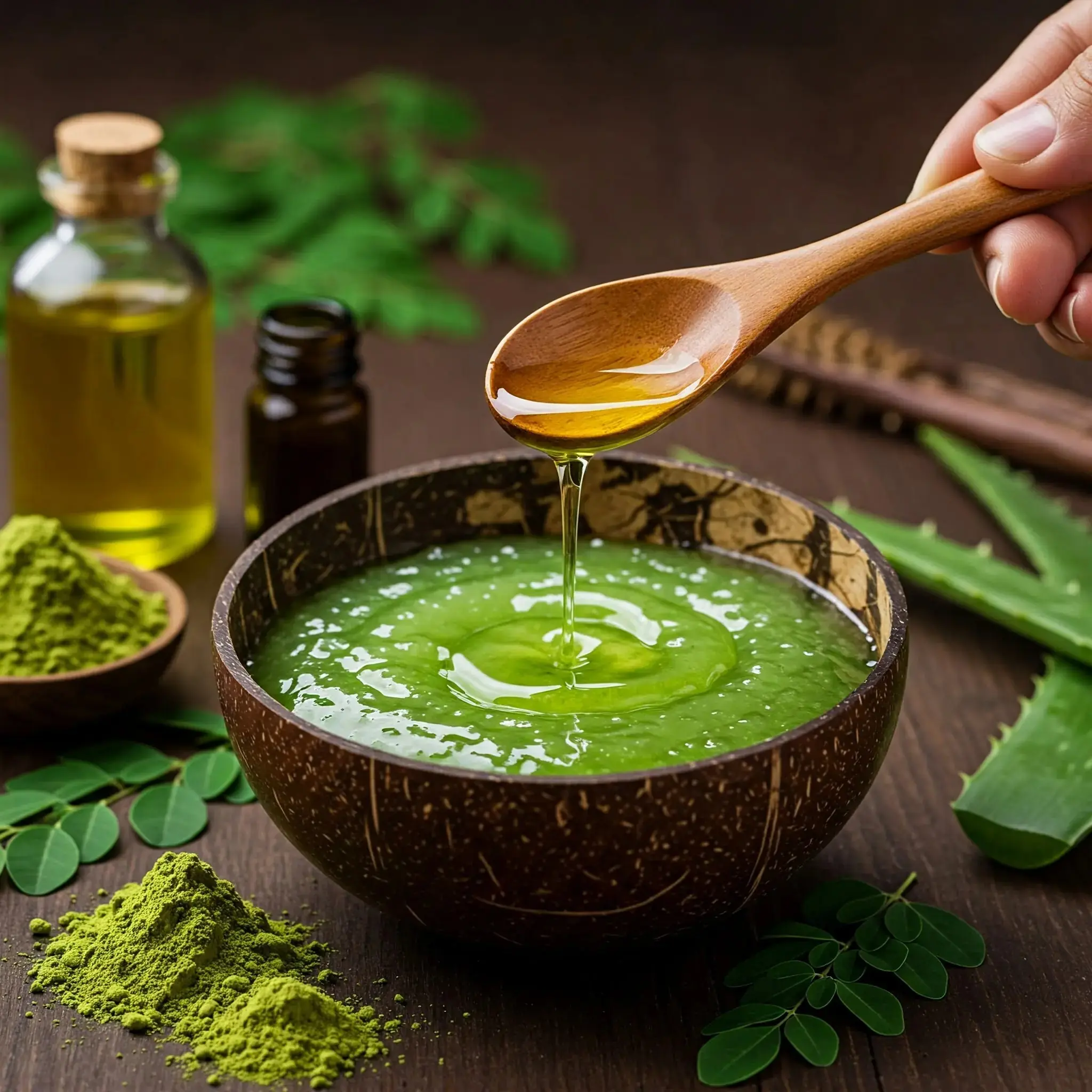
Green Tea For Beautiful Skin: Get Glowing Skin, Remove Dark Spots & Shrink Large Pores
By incorporating green tea into your daily routine, you can improve skin texture, reduce dark spots, shrink pores, and maintain a healthy, glowing complexion.

Willis Winn's Story: A Powerful Testimony of Slavery's Lasting Impact
Discover Willis Winn's remarkable life story, including his reflection on slavery and its lingering effects in post-Civil War America. His powerful account sheds light on the struggles of African Americans long after emancipation.

The Original Mixologists: Uncovering the Enduring Legacy of Black Bartenders in American Cocktail History
Uncover the rich, often untold, history of Black bartenders as cornerstones of American cocktail culture. Explore the revolutionary contributions of Tom Bullock, Cato Alexander, and John Dabney, whose innovations shaped iconic drinks long before the Roari

You'll never order airplane coffee after this: Flight attendants expose a shocking secret.

Spanish woman spends $50,000 crore on 'momo-like' lips; "I have trouble breathing and can't close my mouth... but I have no plans to stop"
A transgender woman who has gotten so much lip filler she now has breathing problems and can't close her mouth has insisted that she's far from done.

Taking Custody of a Child Was the Sh0cking Part of My Late Mother’s Will Until I Uncovered the Hidden Clause
I never imagined my mother’s will would include custody of a twelve-year-old girl I’d never heard of. That alone was a challenge, but when I discovered the hidden clause, my life changed forever.

DIY Aloe Vera Beauty Cubes for Dark Spots, Acne, and Skin Rejuvenation: The Ultimate Skincare Hack
Aloe vera ice cubes are an easy-to-make, affordable, and highly effective remedy for a variety of skin concerns.

Frequent infections? It could be sickle cell disease. A doctor shares 8 early warning signs you need to know
From jaundice to swelling in hands, know the early signs of sickle cell disease. The doctor also shared when to seek medical intervention.

WIFE OVERHEARS CR:U:EL GOSSIP ABOUT HUSBAND’S AFFAIR: HER RUTHLESS REVENGE BEGINS
A woman found out her husband was che@ting! Her revenge was twisted and merciless.

What are those bumpy dots on the rice paddle for? Turns out they're not for preventing sticking, as many believe.
Although used daily, many people do not know what the bumps on the rice paddle in the rice cooker are for.

Don't ignore it: The truth about hidden cameras in hotel mirrors and how to spot them for your safety
Check the mirror in the hotel room to detect if you are being watched.
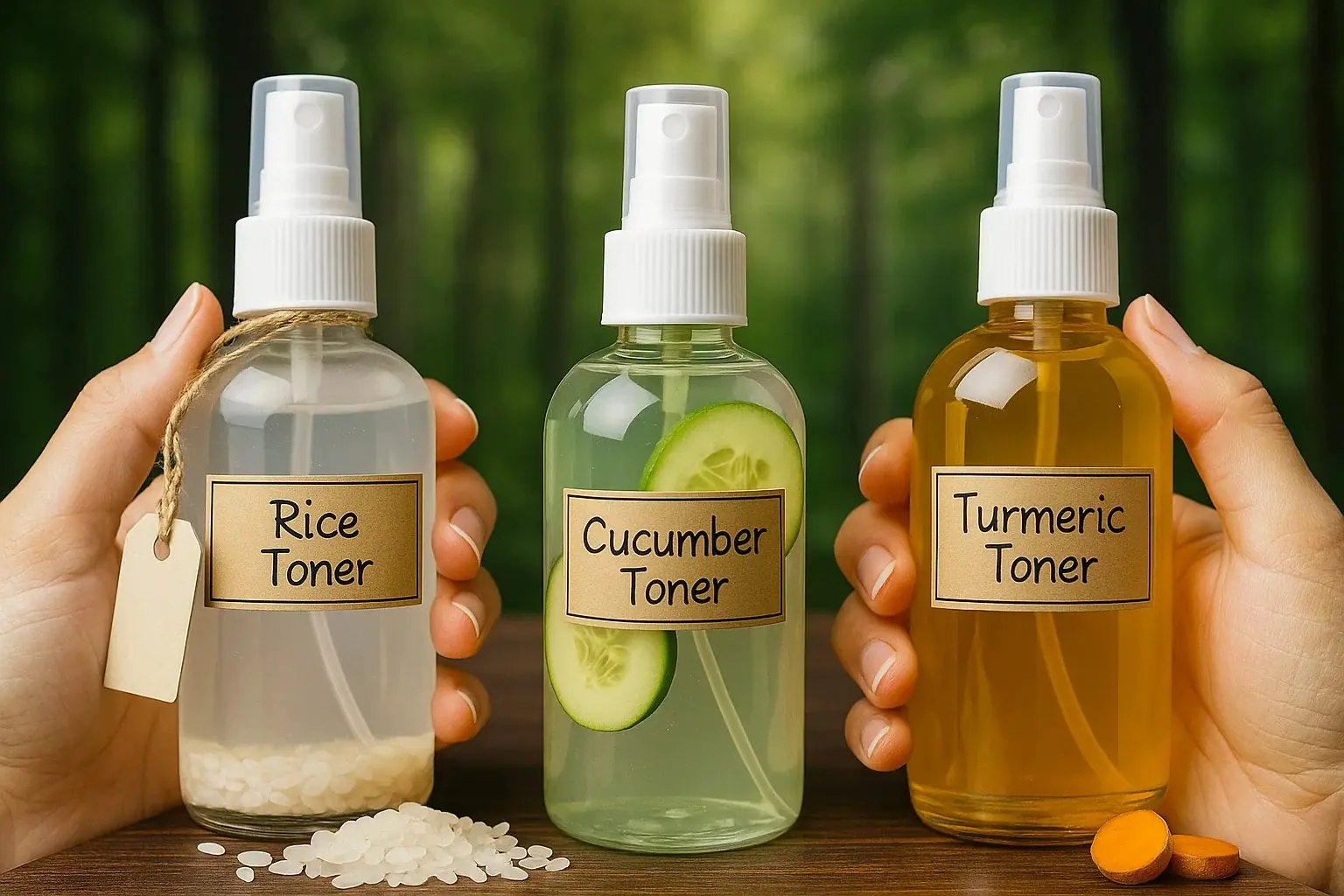
Top 5 Homemade Face Toner Recipes for Every Skin Type: Easy Recipes for Healthy, Glowing Skin
With natural ingredients like rice water, cucumber, potato juice, rose water, and green tea, you can address a variety of skin concerns, from acne to dryness and aging.

How to Make & Use Onion Juice & Oil for Faster Hair Growth: Complete Guide to Onion Benefits for Healthy Hair
By using onion hair oil, onion juice, onion hair serum, and including onions in your diet, you can provide your hair with the nutrients and care it needs to grow long, thick, and healthy.

A Choice Between Love and Self-Care: Can She Put Herself First?
A woman struggles with the pressure to help her boyfriend’s dying mother, whose behavior is pushing her to her limits. Torn between family responsibility and her own well-being, she must make a choice that could affect her future with Liam.

My Sister’s Cowboy Boots: The Battle for My Car’s Cleanliness and My Boundaries
A 17-year-old girl struggles with her younger sister’s entitlement to ride in her car and the mess that comes with it. When it leads to a heated family argument, can the older sister stand her ground?